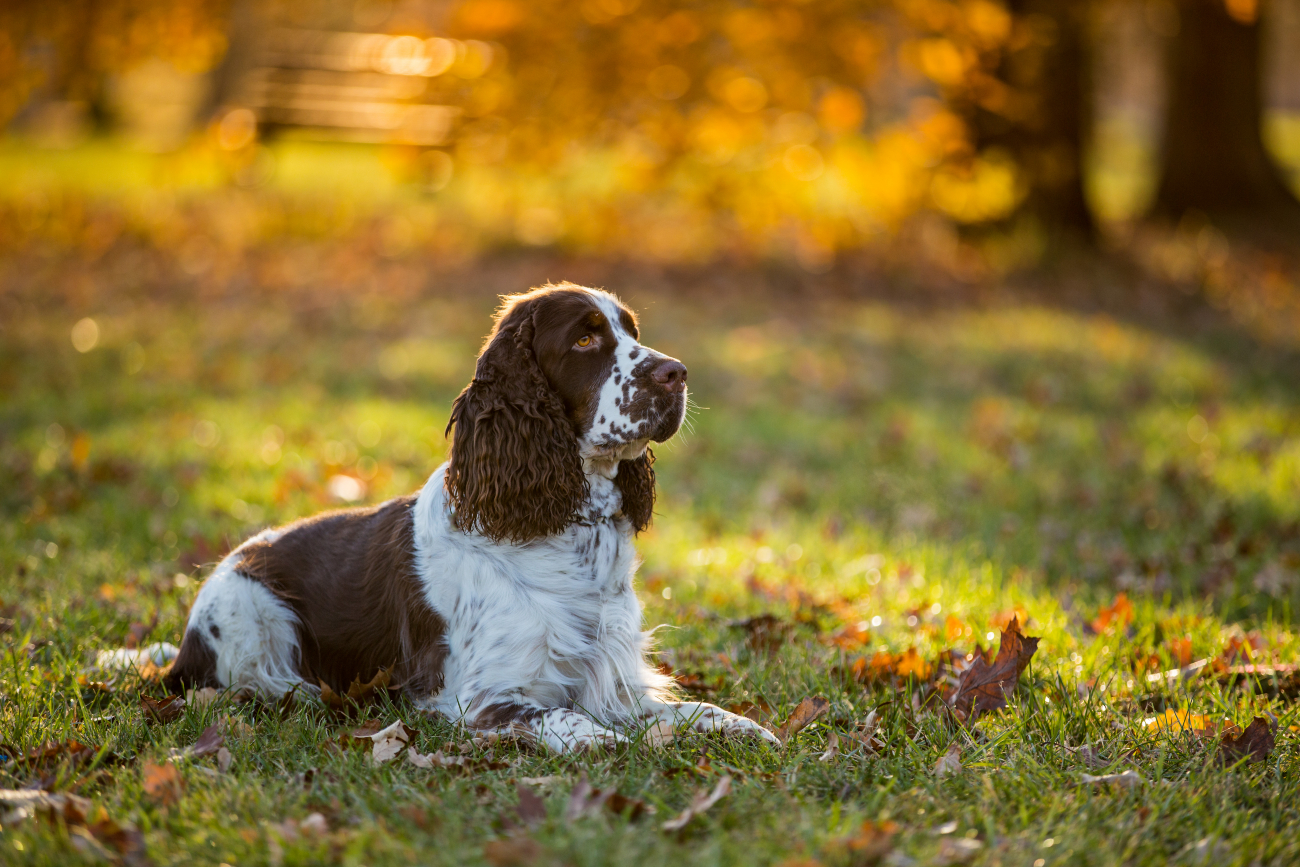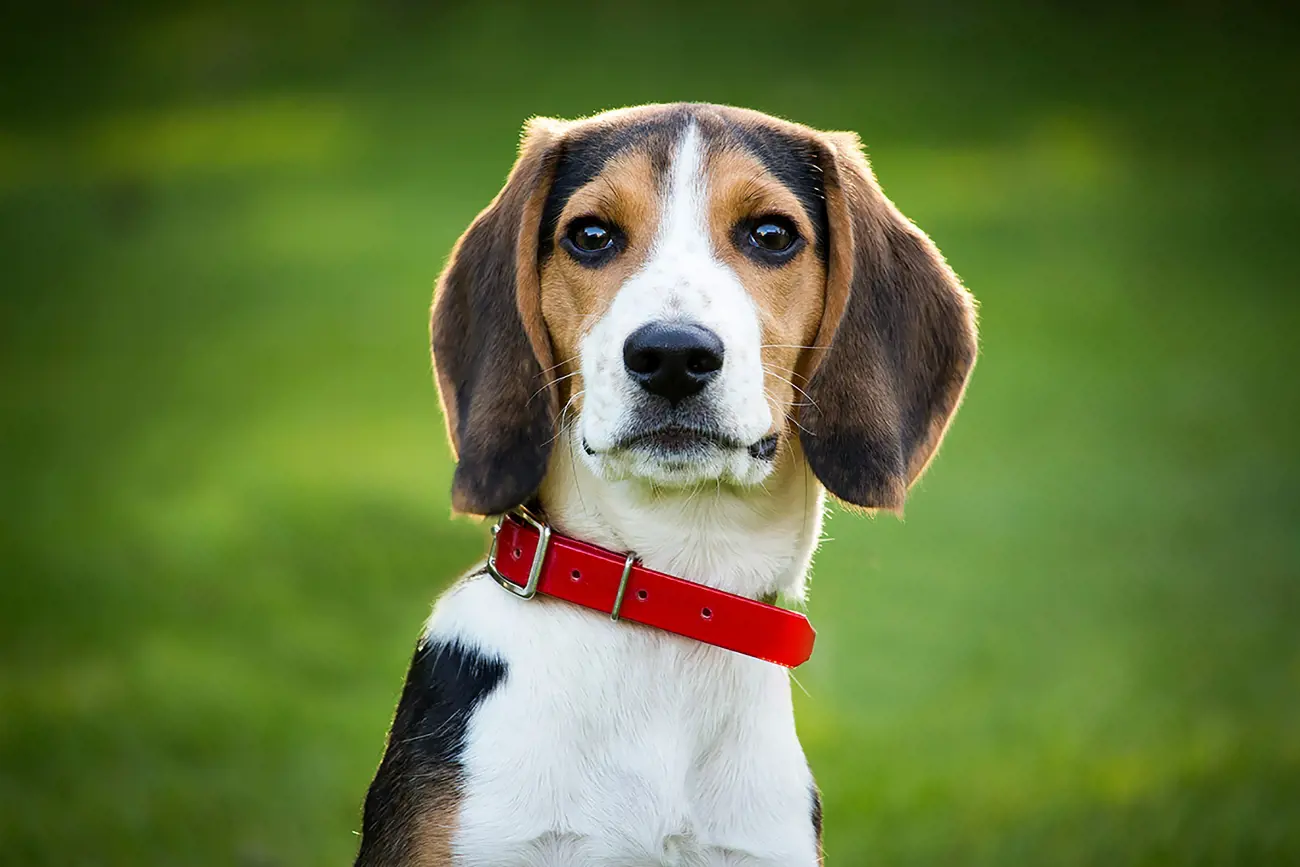Are Cocker Spaniels easy to train?
21st June, 2024

Cocker Spaniels are known for their charismatic, lively, and jovial nature, making them a beloved addition to many homes. But, are Cocker Spaniels easy to train? The answer is a resounding yes!
These intelligent and adaptable canines are quick learners with a keen desire to please their humans. With the right training techniques, consistency, and a dash of patience, you can transform your Cocker Spaniel into a well-behaved and obedient companion.
In this comprehensive guide, we'll delve into the world of Cocker Spaniel training, offering valuable insights and practical advice to help you navigate this rewarding journey.
Understanding the Cocker Spaniel personality
Before we jump into the specifics of training, it's crucial to understand the unique personality traits and natural instincts of Cocker Spaniels.
Cocker Spaniels tend to be known for their cheerful and affectionate disposition. This sociable breed loves being around their human family. Their intelligence and eager-to-please nature make them quick learners. They're also energetic and active, needing regular physical and mental stimulation.
These dogs have a strong hunting instinct, inherited from their ancestors. This can often translate into an inclination to sniff out things and chase after birds or other small animals.
Cocker Spaniels are generally even-tempered and gentle. However, they also tend to be sensitive and may shy away from harsh feedback or punishment. This trait is crucial to remember when considering training techniques.
The importance of early basic training
Starting the training process early is vital for shaping your puppy into a well-behaved adult dog. The day you bring your Cocker Spaniel puppy home is the best day to start training.
With consistent, positive reinforcement from an early age, your Cocker Spaniel puppy will soon understand essential commands and behaviours.
Getting started with crate and house training
One of the first steps in training a Cocker Spaniel puppy is introducing them to crate training and housebreaking.
Crate training basics
Crate training is an effective housebreaking technique. Dogs see their crates as a refuge, a safe place for relaxation, rather than a form of punishment. A properly sized crate, just large enough for your Cocker Spaniel pup to stand up and turn around in, will help in this process.
To make the crate more appealing, place it in a common area in your home and add comfortable bedding. Also, leaving their favourite toy or the occasional treat in the crate can encourage your puppy to explore the space.
House training essentials
House training your Cocker Spaniel revolves around establishing a regular toilet routine. Choose an outdoor spot for your dog to use as a bathroom and take them to that spot each time you go outside. Over time, your pup will understand that they should go to the bathroom in the same outdoor spot.
It's essential to reward your dog immediately after they've done their business at the correct spot. Consistent positive reinforcement will help them associate the act of relieving themselves outside with good behaviour.
Are Cocker Spaniels good for beginners?
Cocker Spaniels are indeed a great choice for beginners. Known for their gentle, affectionate, and friendly nature, these dogs are easy to train and socialise, making them an excellent option for first-time dog owners.
Cocker Spaniels are also versatile in their adaptability. They can comfortably live in an apartment or a house with a yard, adjusting well to different living conditions. Moreover, their moderate size makes them manageable for new dog owners who may find larger breeds overwhelming.
However, it's important to note that while Cocker Spaniels are good for beginners, they still require regular physical exercise and mental stimulation to keep them healthy and happy.
They are also prone to certain health issues such as eye and ear infections, which requires diligent care and regular vet check-ups. This means that potential owners should be prepared for the commitment required to keep these dogs in the best possible health.
Leash training your Cocker Spaniel
Leash training is another crucial aspect of raising a well-behaved dog. Despite being relatively small, Cocker Spaniels are strong dogs that tend to pull on their leashes. It's never too early to begin leash training your puppy.
Obedience training: Teaching basic commands
Cocker Spaniels enjoy the mental stimulation of obedience training, and they excel at learning basic commands such as "sit," "down," "come," "stay," and "heel." These commands will keep your dog safe and in check in many situations.
The power of consistency and positive affirmations
Consistency is key in dog training. Developing a consistent, structured training plan makes your pup feel secure. Similarly, using positive affirmations to reward good behaviour teaches your dog that good things happen when they behave well.
Avoiding distractions during training
To avoid distractions, training should be done in a quiet area where you won't be interrupted. As the training process progresses, slowly introduce small distractions to help your Cocker Spaniel learn to stay focused, even amidst distractions.
Physical activity and playtime for Cocker Spaniels
Cocker Spaniels are energetic dogs that excel in many physical activities such as agility training, flyball, tracking, and hunting. Regular physical activity is a great way to keep your Cocker Spaniel stimulated and in good health.
Keep training short and focused
Cocker Spaniel training sessions should be quick, focused, and fun. This will keep your dog interested and most receptive to commands. Ending each training session on a positive note will teach your dog that training is a fun and rewarding experience.
What is the best age to train a Cocker Spaniel?
The best age to start training a Cocker Spaniel is as early as 8 weeks old. The Cocker Spaniel is known for its intelligence and eagerness to please, which can make training at a young age quite effective.
However, it's essential to remember that training should be approached in a gentle and patient manner, as this breed is sensitive and can become frightened or anxious if handled harshly.
The Cocker Spaniel's youthful energy and curiosity make the puppy stage an ideal time for socialisation and basic obedience training. Consistent, positive reinforcement methods work best with this breed.
It is also crucial to remember that while the initial stages of training can begin at this early age, it should continue throughout the Cocker Spaniel's life to maintain their skills and good behaviour.
Dog insurance for your furry friend

While training your Cocker Spaniel is important, ensuring their health and welfare is equally essential. This is where dog insurance comes in. Dog insurance can provide coverage for various health issues your Cocker Spaniel may face.
You can get a quote for your Cocker Spaniel through our website. If you would like to talk to one of our dog insurance team, you can get in touch with us on 0330 102 5748.
In conclusion, while Cocker Spaniels are easy to train, it requires commitment, patience, and consistency. With these traits and the right training techniques, you can ensure your Cocker Spaniel grows into a well-behaved and obedient companion.
Helpful Pages
Recent Posts

Why do Great Danes bury their heads?
12/03/25
Find out more about Beagles
28/02/25Pet Insurance Quote
- 98% claims paid *
- Claims paid directly to vets
- 24/7 vet video consultations
- Interest free monthly payments


